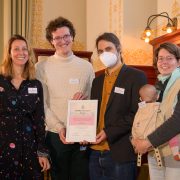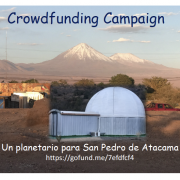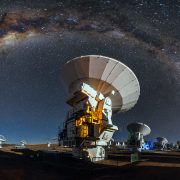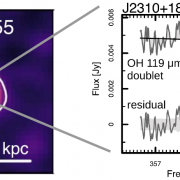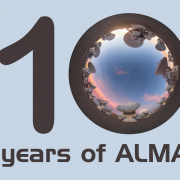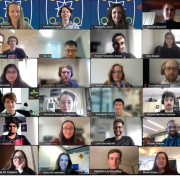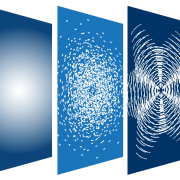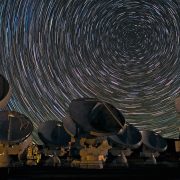Sixth European ALMA Regional Centre community assembly
/in Allegro, ALMA, European ARC, General news, Newsletter March 2023/by AllegroThe Sixth European ALMA Regional Centre community assembly meeting will take place virtually on the 17th of April at 11:00 CEST and can be accessed via this Microsoft Teams link. During the meeting, staff from the European ALMA Regional Centre will present updates on ALMA Cycle 10, in particular the procedures for Joint Proposals with other facilities including the European Southern Observatory’s Very Large Telescope, the Space Telescope Science Institute’s James Webb Space Telescope, and the National Radio Astronomy Observatory’s Karl G. Jansky Very Large Array. In addition, you will hear about the new capabilities offered in Cycle 10, including ALMA Band 1, and the support that the European ARC network offers the community.
Crowdfunding campaign to establish a planetarium in San Pedro de Atacama
/in Allegro, ALMA, General news, Newsletter March 2023/by AllegroFormer ALMA director, Thijs de Graauw, and the Fondacion “Planetarios Educativos para Chile” have launched a crowdfunding campaign to construct and operate a public planetarium in San Pedro de Atacama, ALMA’s host community. This provides the opportunity to include the people of San Pedro de Atacama in the celebrations of 10 years of ALMA science operations, and express appreciation for the Licanantai communities upon whose sacred lands the ALMA Observatory is situated. The planetarium will open the ALMA universe for this local community, and will provide a window to the world of science and technology for schools and colleges that will help inspire young people to learn and participate in the STEM fields.
For more information and to donate, visit https://gofund.me/7efdfcf4
ALMA Cycle 10 proposal preparation workshop
/in Allegro, ALMA, General news, Newsletter March 2023/by AllegroThe Allegro ALMA Regional Centre node is organising a proposal preparation workshop on the 20th of April 2023 in advance of the upcoming ALMA proposal deadline (expected to be the 10th of May 2023). The workshop will have two sessions: In the morning there will be an introduction to writing and preparing ALMA proposals for new users. In the afternoon there will be a summary of new features and changes in Cycle 10 for experienced users as well as the attendees of the morning session. You are welcome to attend online or in person at Leiden Observatory. For more information about the workshop, visit the workshop website. Registration deadline is April 13, 2023.
In addition to this proposal preparation day, you can request a meeting with the Allegro staff to discuss your proposal or come to our drop-in sessions (April 24, May 1, and May 8 at HL-1122 from 14:00-16:00). We especially encourage anybody who is considering submitting a Large Programme to contact us at Allegro early so that we can explore the many ways we can support your project and help optimise your program.
If you want to get a head start on thinking about writing an ALMA proposal, Allegro’s Program Manager Violette Impellizzeri gave a presentation last year, available to view as a YouTube video, about writing and reviewing ALMA proposals. It includes guidelines for writing dual anonymous proposals and useful tips and tricks.
More about Cycle 10:
It is expected that antenna configurations C-1 to C-8 will be available in Cycle 10. There will also be several new capabilities offered by ALMA in this cycle, including the new ALMA Band 1 and the new availability of joint proposals with JWST, the VLA and the VLT. For more information about the expected dates and what will be on offer in Cycle 10, please see the ALMA Cycle 10 Pre-announcement.
Science highlight: Tracing galaxy mass loss via OH absorption at high redshift
/in Allegro, ALMA, General news, Newsletter March 2023/by AllegroMass loss from high-redshift galaxies is crucial in quenching star formation and enriching the intergalactic medium. Only limited information is available on the gas mass loss of galaxies at z>6. Using ALMA observations of OH 119 μm doublet toward a small sample of high-redshift unobscured QSO host galaxies, Butler et al. (2023, ApJ 944, 134) trace the outflows blueshifted absorption. Estimating the mass loss rate, the authors conclude that the mass loss is likely driven by star formation alone, with only a small contribution from the AGN. Viewing geometry and coverage factor are important factors in the interpretation of the absorption lines and inference of the mass loss rates. Higher resolution follow-up observations with ALMA, and data on a larger sample, will further strengthen the presented results. This work included contributions from astronomers from Leiden, Delft, Heidelberg and Bologna.
Above Figure: ALMA continuum (left) and OH absorption (right) observations of one of the unobscured QSO host galaxies studied by Butler et al. (2023). Blueshifted OH 119 μm absorption traces star-formation driven mass-loss from this z=6 galaxy.
10 years of ALMA science operations
/in Allegro, ALMA, General news, Newsletter March 2023/by AllegroMeeting of ALMA Young Astronomers 2023
/in Allegro, ALMA, European ARC, General news, Newsletter March 2023/by AllegroMarch 10th marked the successful completion of the second Meeting of ALMA Young Astronomers, MAYA 2023. The goal of MAYA is to provide a platform where early career astronomers can present their recent ALMA work, and to facilitate new collaborations and projects through the interaction with other participants and staff working in the ARC nodes.
Work presented at MAYA showcased some of the most exciting research done by early-career astronomers who are interested in ALMA. This week-long virtual conference included participants from around the world who gave talks on topics ranging from protoplanetary disks to high redshift galaxies. The conference had a total of 192 registrants, with 69 abstracts submitted. There were 51 talks on the final MAYA 2023 program, and the majority of these talks have been recorded and will be available shortly on the YouTube channel of the European ALMA Regional Centre Network. The full program can be found on the MAYA 2023 webpage, along with an abstract booklet, and PDFs of the three invited talks (Astronomer on Duty, the ALMA Science Archive, and the Future of ALMA).
ALMA Data Reduction Training Day: Dec 9, 2022
/in Allegro, ALMA, General news, Workshops/by AllegroFollowing the 6th Netherlands ALMA Science Day, on Thursday, December 8, 2022, we will host an ALMA Data Reduction Training Day in-person in HL 111.
The training will begin at 9:30 AM and continue into the afternoon with coffee breaks and an hour lunch break. The Allegro team will be presenting a series of talks that cover the following topics: how to go from the archive to obtaining calibrated visibilities, calibration, imaging, self-calibration, and analysis tools. There will be a short Question & Answer session at the end of each talk (approximately five minutes).
Several of the talks will include a hands-on component that participants can follow along with. Information on how to connect to the Allegro workstations will be provided prior to the training day.
- Program
- Connection details will be sent to registered participants
- Directions to Leiden Observatory
| Program* | December 9, 2022 | |
|---|---|---|
| 9:15-9:30 | Welcome | |
| 9:30-10:15 | Aida Ahmadi | ALMA data: From the archive to calibrated visibilities |
| 10:15-11:00 | Andrés Pérez-Sánchez | Calibration |
| 11:00-11:20 | Coffee break | |
| 11:20-12:20 | Ashley Bemis | Imaging & tclean |
| 12:20-12:50 | Andrés Pérez-Sánchez | Self-calibration |
| 12:50-14:30 | Lunch break | |
| 14:30-15:30 | Alex Hygate | Analysis Tools |
| 15:30-16:30 | Aida Ahmadi | Intro to CARTA |
* Note that this is a rough schedule as we plan to dedicate plenty of time for questions after each session.
Directions to Leiden Observatory
Note that this is not the old observatory in the center of Leiden. Instructions on how to get to Leiden Observatory, including transportation from Schiphol Airport or the central trains station, can be found here. Note that these instructions specify the route to the Lorentz Center, which is in the building on the right in the photo below (Oort building). The event will be held in the joining taller building – Huygens building. Leiden Observatory is located on the 4-5th floors of both buildings, and the Allegro offices are located on the 11th floor of the Huygens building.
Locations inside the building
Workspaces reserved for the ALMA Data Reduction Training Day on December 9, 2022 are located in room HL-111 on the 1st floor of the Huygens building. There is a reception at the entrance of the building where they can provide you with directions.
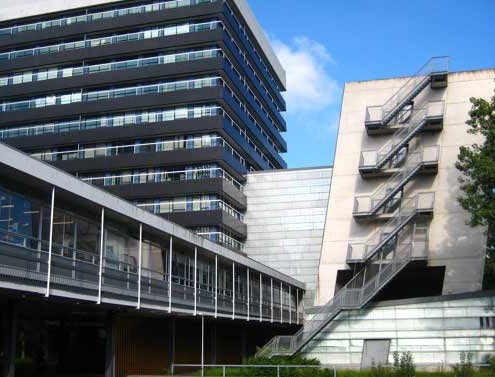
6th Netherlands ALMA Science Day: Dec. 8, 2022
/in Allegro, ALMA, General news, Workshops/by AllegroAllegro announces the 6th Netherlands ALMA Science Day, that will take place in person at Leiden Observatory on Thursday, December 8, 2022. At the Science Day, we will highlight the latest scientific results obtained with ALMA by the Netherlands astronomical community. The meeting will also allow ample time to discuss user experiences and other ALMA related topics. Registration for contributed talks is now open (deadline: Nov. 25, 2022) and we welcome contributions in all science areas.
Following the Science Day, on Friday, December 9, 2022, we will also host an introductory ALMA Data Reduction Training Day. At this workshop, Allegro fellows will introduce CASA and ALMA data reduction techniques, share tips & tricks, and offer hands-on training in exploring the ALMA archive, self-calibration, imaging, and data analysis.
| 6th Netherlands ALMA Science Day Dec. 8, 2022 |
||
|---|---|---|
| Session I (Chair: Ashley Bemis) | ||
| 1000-1005 | Welcome (Allegro) | |
| 1005-1020 | Joshua Butterworth (Leiden) | Understanding if molecular ratios can be used as diagnostics of AGN and starburst activity: The case of NGC 1068 |
| 1020-1035 | Ko-Yun (Monica) Huang (Leiden) | Reconstruct shock history in NGC 253 with ALCHEMI |
| 1035-1050 | Mathilde Bouvier (Leiden) | Sulphur-bearing species in NGC 253: what do they trace? |
| 1050-1105 | Ian Roberts (Leiden) | Gas Compression from Ram Pressure in Nearby Cluster Galaxies |
| 1105-1120 | Raffaella Morganti (ASTRON, Groningen) | On-going feeding of the radio galaxy 3C84 |
| 1120-1145 | Gergö Popping (ESO) | The latest from ALMA |
| 1145-1205 | ALMA Q&A and discussion | |
| 1205-1300 | Lunch | |
| Session II (Chair: Alex Hygate) | ||
| 1300-1330 | Rychard Bouwens (Leiden) | The REBELS Large Program |
| 1330-1345 | Ivana van Leeuwen (Leiden) | Dust-obscured star formation at z ∼ 6 from [CII] selected companion galaxies |
| 1345-1400 | Violeta Gamez Rosas (Leiden) | Kinematics of the molecular torus in NGC 1068 |
| 1400-1415 | Di Wen (Groningen) | Testing Primordial Black Hole Dark Matter with ALMA Observations of Strong Gravitational Lensing |
| 1415-1430 | Hector Olivares (Nijmegen) | Black hole physics and the Event Horizon Telescope |
| 1430-1445 | Short break | |
| Session III (Chair: Aida Ahmadi) | ||
| 1445-1500 | Margot Leemker (Leiden) | Hot or cold: finding the temperatures in transition disks using ALMA |
| 1500-1515 | Logan Francis (Leiden) | Accretion Burst Echoes as Probes of Protostellar Environments and Episodic Mass Assembly |
| 1515-1530 | Milou Temmink (Leiden) | Investigating the Cold Chemistry in the Asymmetric Disk of HD 142527 |
| 1530-1545 | Lucas Stapper (Leiden) | Herbig disks: flat vs flared, really? |
| 1600 | End of meeting | |
Directions to Leiden Observatory
The address of Leiden Observatory is Niels Bohrweg 2, 2333 CA Leiden. Note that this is not the old observatory in the center of Leiden. Instructions on how to get to Leiden Observatory, including transportation from Schiphol Airport or the central trains station, can be found here. Leiden Observatory is located on the 4-5th floors of the Oort building (seen on the right in the photo below), and the Huygens building (the taller building seen on the left in the photo below). Allegro offices are located on the 11th floor of the Huygens building.
The Science Day will take place in room HL 414 on the 4th floor of the Huygens building. We will have signs and there is also a reception at the entrance of the building where they can provide you with directions.
For those joining us online, connection details will be sent to you by email before the start of the event.

ALMAxLeiden- “The Great Telescope Adventure” walking tour launched in Leiden
/in Allegro, General news, Newsletter September 2022/by AllegroAs part of the European City of Science Leiden 2022 project, Allegro has been developing a series of self-guided walking tours to introduce the public to ALMA and radio interferometry. The first tour entitled “The Great Telescope Adventure” has now launched. Participants take on the role of young researcher Robin, who is visiting ALMA only to find that all of ALMA’s antennas have stopped working. It’s then up to them to get ALMA functioning again by visiting and reactivating a number of ALMA antennas one by one. As the tour progresses and more antennas come online, the image of the object Robin is observing will become clearer revealing how the process of interferometry works. During the tour Dr Maria Gomez serves as a guide who offers interesting facts about radio astronomy, ALMA and connections to Leiden. The route of the walking tour visits several landmarks in the centre of Leiden, is 5.2km long and can be completed in roughly 1.5 hours. You can find out more about ALMAxLeiden on the ALMAxLeiden website or go directly to the English Tour or the Dutch Tour to try them out.

